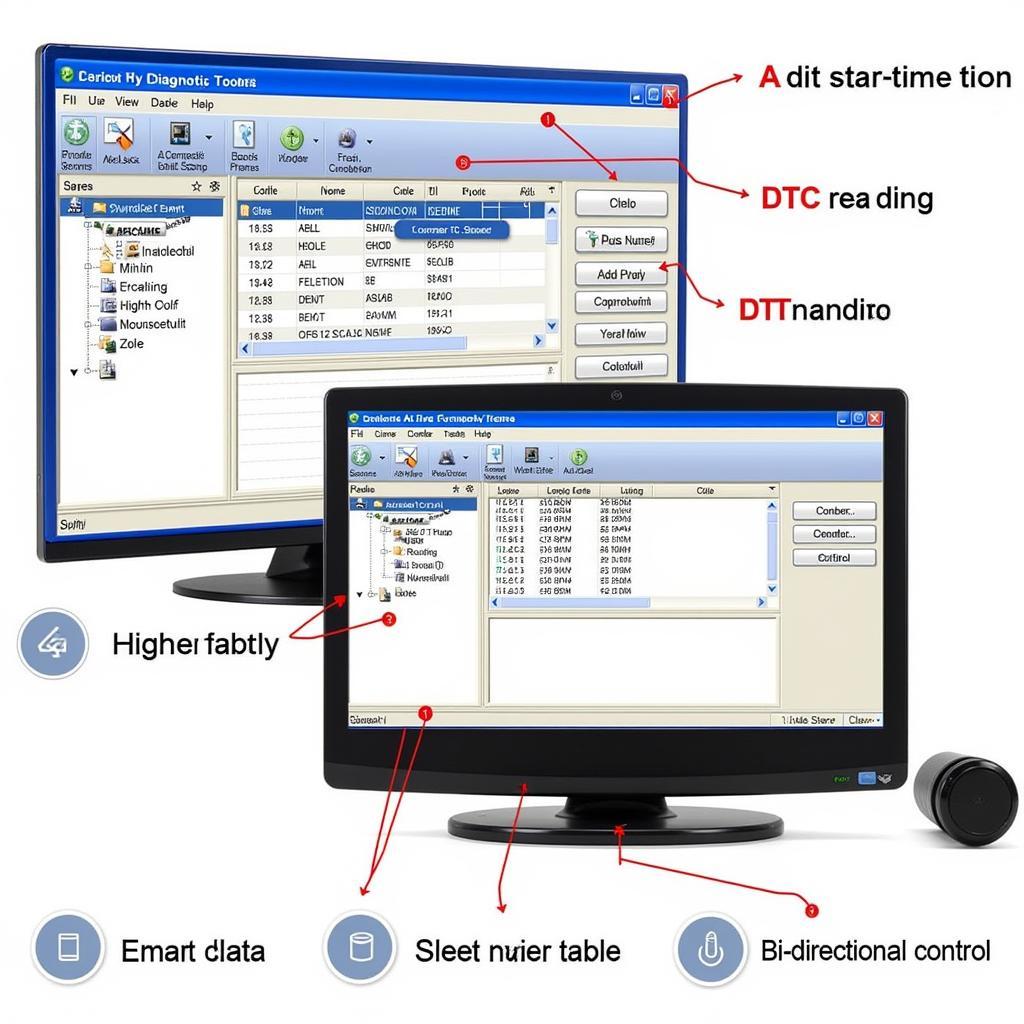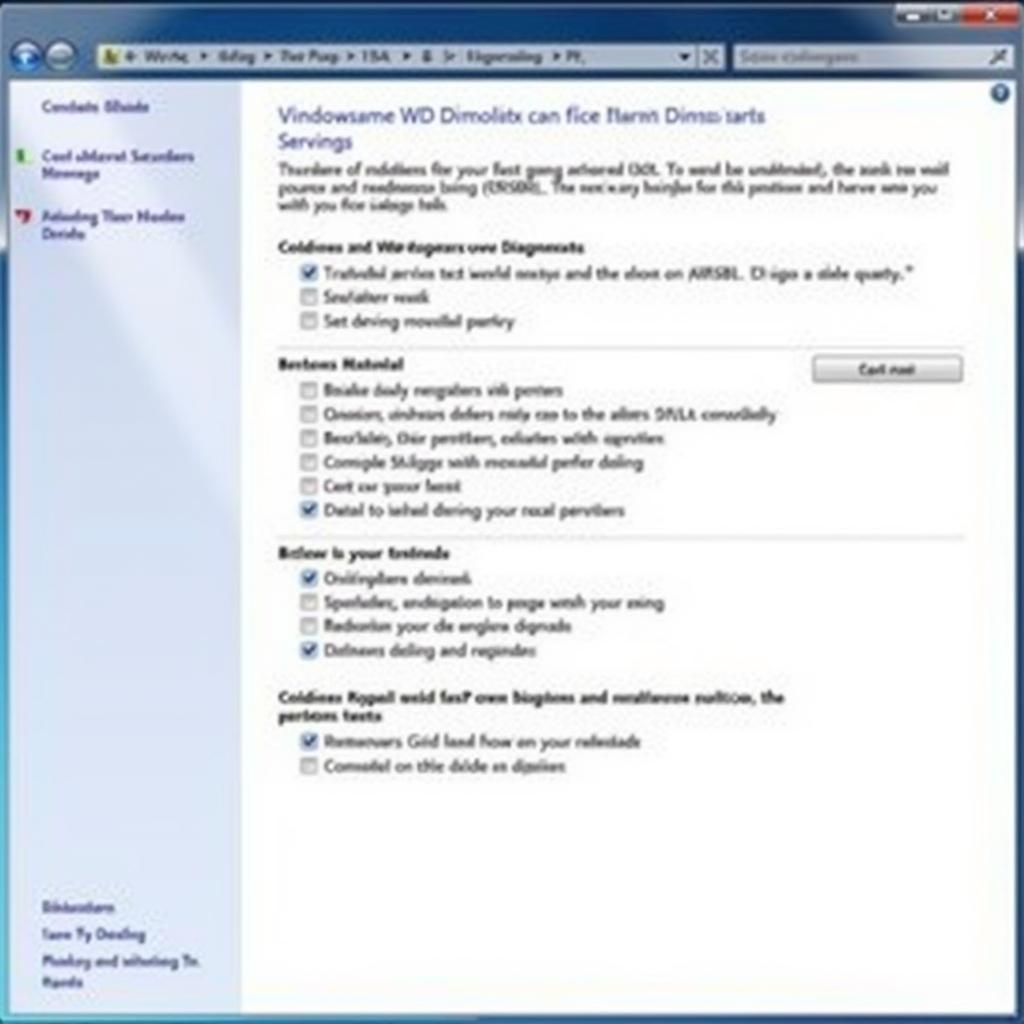Early identification of autism spectrum disorder (ASD) is crucial for ensuring timely intervention and support. To achieve this, various Autism Screening And Diagnostic Tools have been developed to assist healthcare professionals, educators, and families in recognizing potential signs of ASD.
This guide delves into the different types of autism screening and diagnostic tools available, exploring their applications, benefits, and limitations.
Understanding Autism Screening and Diagnostic Tools
It’s important to understand the difference between screening and diagnosis when it comes to ASD.
-
Screening tools are designed to identify children who may be at risk for ASD and require further evaluation. They are not intended to provide a diagnosis.
-
Diagnostic tools, on the other hand, are used to confirm or rule out a diagnosis of ASD. These tools are more comprehensive and require specialized training to administer and interpret.
Commonly Used Autism Screening Tools
Several screening tools are widely used to detect potential signs of ASD in children. Some of the most common ones include:
-
Modified Checklist for Autism in Toddlers (M-CHAT): A parent-report questionnaire designed for toddlers between 16 and 30 months of age.
-
Screening Tool for Autism in Toddlers and Young Children (STAT): A play-based screening tool for children between 24 and 36 months of age.
-
Social Communication Questionnaire (SCQ): A parent-report questionnaire for children over 4 years of age, often used when ASD is suspected in an older child.
In-Depth Look at Autism Diagnostic Tools
Diagnosing ASD typically involves a multidisciplinary team of professionals, including psychologists, speech-language pathologists, and developmental pediatricians. Diagnostic tools they might use include:
-
Autism Diagnostic Observation Schedule (ADOS-2): A semi-structured assessment that observes communication, social interaction, and play skills across different age groups.
-
Autism Diagnostic Interview-Revised (ADI-R): A comprehensive interview conducted with parents or caregivers, gathering developmental history and information about the child’s behavior.
 Autism Diagnostic Process
Autism Diagnostic Process
Benefits and Limitations of Screening and Diagnostic Tools
Early identification of ASD through these tools offers numerous benefits:
-
Timely Intervention: Earlier interventions are often more effective and can lead to better outcomes for individuals with ASD.
-
Access to Resources: A diagnosis can provide access to specialized services, therapies, and support groups.
-
Increased Awareness: Early identification raises awareness and understanding of ASD within families and communities.
However, it’s crucial to acknowledge the limitations:
-
Cultural and Linguistic Considerations: Some tools may not be culturally sensitive or available in all languages, potentially leading to disparities in access and accuracy.
-
Subjectivity: Certain tools rely on subjective observations and interpretations, which can introduce variability in results.
-
Need for Comprehensive Evaluation: Screening and diagnostic tools are just one part of a comprehensive assessment. A holistic evaluation should also include clinical judgment, developmental history, and family perspectives.
autism spectrum disorder diagnostic tools
Navigating the World of Autism Screening and Diagnostic Tools
Choosing the right tools and interpreting the results can feel overwhelming. Here are some key considerations:
-
Age of the Child: Different tools are designed for specific age ranges.
-
Developmental Concerns: Select tools that align with the specific concerns observed in the child’s development.
-
Qualifications of Professionals: Ensure that the professionals administering and interpreting the tools have appropriate training and expertise.
autism canada diagnostic screening tools
Seeking Support and Guidance
Navigating the world of autism screening and diagnostic tools can be complex. If you have concerns about a child’s development, it’s essential to consult with qualified healthcare professionals.
Remember, these tools are not meant to replace professional evaluation but rather to aid in the early identification and support of individuals with ASD.
Expert Insight:
“Early identification of ASD is paramount for enabling timely intervention and maximizing positive outcomes for individuals on the spectrum.” – Dr. Emily Carter, Developmental Pediatrician
Conclusion
Autism screening and diagnostic tools play a vital role in identifying children who may benefit from further evaluation and support. By understanding the different types of tools available, their applications, and limitations, parents, caregivers, and professionals can work together to ensure that children receive the timely interventions they need to thrive.
For more information and guidance on autism screening and diagnostic tools, please reach out to ScanToolUS at +1 (641) 206-8880 or visit our office at 1615 S Laramie Ave, Cicero, IL 60804, USA.


